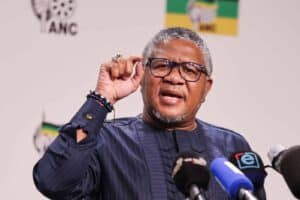Government of national unity is an opportunity to reclaim the values Nelson Mandela left us with, says Cas Coovadia.

As South Africa today marks Nelson Mandela International Day, in tribute to the legacy of world-revered statesman Nelson Mandela, antiapartheid struggle stalwarts are expressing concern that the current crop of ANC leaders have abandoned his teachings of selflessness and put personal interests above those of the people.
As this year’s event is being celebrated under the theme: “It’s still in our hands to combat poverty and inequity”, Nelson Mandela International Day offers everyone an opportunity to heed the call to action and to recognise their individual power to change the world around them.
ALSO READ: Changing political landscapes: From Madiba in’94 to Cyril now
Amid the excitement, antiapartheid stalwarts Cas Coovadia, Neeshan Balton and Mavuso Msimang expressed unhappiness about how the current ANC leadership has deviated from the Madiba philosophy.
‘Violation of values’
Most scathing was Coovadia, who described 30 years of democracy as marking “the violation of the values and leadership of Madiba”.
“Poor governance, corruption, state capture and lack of political will to improve the conditions of life of the majority of our people remain a huge challenge,” said Coovadia.
“The electorate spoke loudly and clearly when they indicated they do not trust any single party to address the crises we face, particularly the ANC.
“This is an indictment on those who claim to govern according to the ethos of Madiba. The GNU [government of national unity] is an opportunity to reclaim the values Madiba left us with.
“Political parties must put the nation above party-political interests and lead the country to investment, inclusive growth and making a positive impact on the lives of the majority.
“Madiba managed a GNU at the most delicate time – just after the 1994 elections. We must do so now, all of us,” said Coovadia.
Balton said Mandela and former ANC chair Oliver Tambo, “played their part in getting SA to the starting line of working towards a better life for all”.
ALSO READ: ‘They never followed the principles of Mandela’ – elderly citizens as they vote
“The emphasis on the need for unity as a prerequisite. But this has often been lost in the past 30 years,” said Balton.
“There is no problem in SA that can be solved through the exclusion of any group of people.
“This starts with the need to stop seeing people or organisations that you might oppose as being the ‘enemy’, but as opponents. Opponents can work together despite their disagreements. It is this fundamental lesson that I take from Madiba’s life as we celebrate Mandela Day.”
Msimang lauded Mandela for playing a key role during negotiations and the transition to democracy.
He said: “Nothing in the negotiations stopped us from attaining full freedom. Any failure that may have ensued after the negotiations must be blamed on those who came after Mandela.”
Analysts say Madiba would be unhappy with corruption
Political analysts Sandile Swana and Dirk Kotzé conceded that Mandela would be unhappy to discover the rampant corruption and state capture under the ANC leadership.
“The situation today would have touched Madiba deep ly in a negative way, if you contrast that with his optimism for the future of SA in the 1990s.
“One of the things Madiba wanted SA to achieve – regardless of the type of economic system – was full employment. Full employment is when unemployment is below 5%. Since the Polokwane conference of the ANC, the nation has moved away from the concept of full employment, investment and wealth creation,” said Swana.
“Another turning point would have been for him to see his moral regeneration concept not taking off. He would be very worried by the levels of corruption.” Kotze said SA was a “completely different world from the Mandela years”.
“We underestimated the impact of the state capture years. We have not really made a proper assessment of the impact on SA.”
ALSO READ: There is much to ‘celebrate’ in South Africa
Mandela’s wisdom
•“There can be no keener revelation of a society’s soul than the way in which it treats its children.
• “As long as poverty, injustice and gross inequality persist in our world, none of us can truly rest.
• “If there are dreams about a beautiful South Africa, there are also roads that lead to their goal. Two of these roads could be named Goodness and Forgiveness.
• “Our human compassion binds us the one to the other – not in pity or patronisingly, but as human beings who have learnt how to turn our common suffering into hope for the future.
• “To deny people their human rights is to challenge their very humanity.
• “There is no easy walk to freedom anywhere, and many of us will have to pass through the valley of the shadow of death again and again before we reach the mountaintop of our desires.
• “I have cherished the ideal of a democratic and free society in which all persons live together in harmony and with equal opportunities. It is an ideal which I hope to live for and to achieve. But if needs be, it is an ideal for which I am prepared to die.
• “Our daily deeds as ordinary South Africans must produce an actual South African reality that will reinforce humanity’s belief in justice, strengthen its confidence in the nobility of the human soul, and sustain all our hopes for a glorious life for all.
• “For to be free is not merely to cast off one’s chains, but to live in a way that respects and enhances the freedom of others.”






